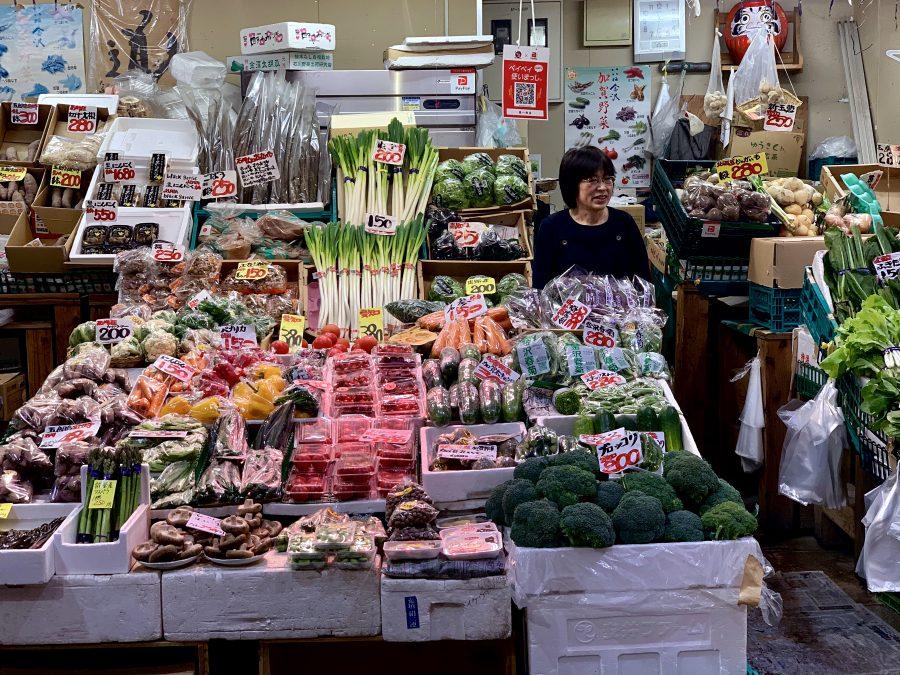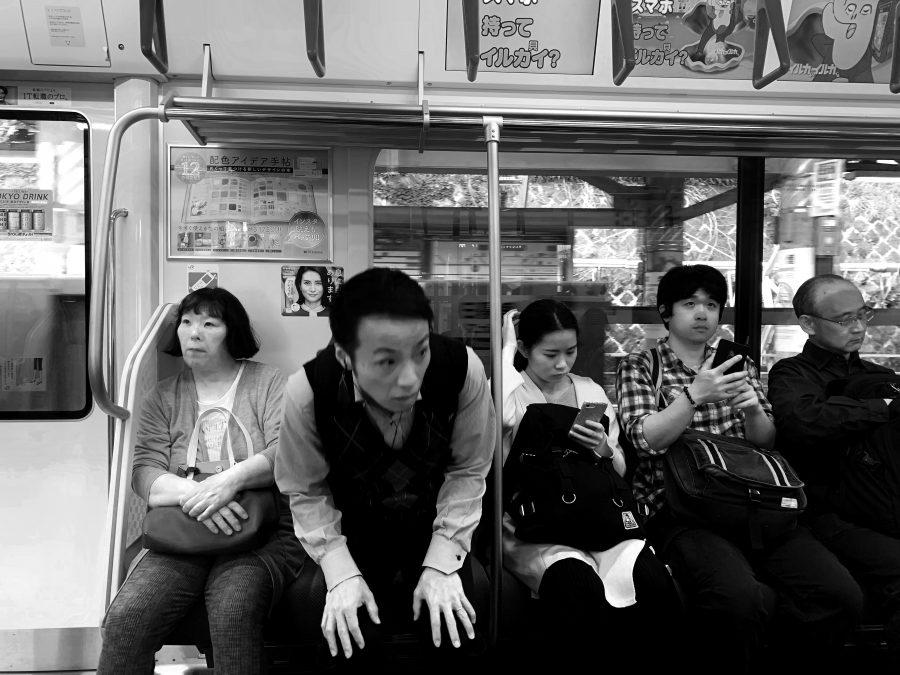Having a part-time job is, for the most part, common for quite a few RBHS students. From food service to retail, many over 16 in the United States work to earn extra money. While these jobs can be fun and engaging for some, for others they can be quite difficult, especially when dealing with customers.
In Japan, however, anytime I have gone into a business or interacted with a customer service employee, they have been wonderfully friendly. Whether I was paying for a drink at one of the many 7/11s or buying a train ticket, the employees seem to take extraordinary pride in their jobs.
As I walked through Toyama Station in the city of Toyama, Japan, I noticed something that solidified my idea of the passion the Japanese when it came to working. An older gentleman, who looked to be in his early eighties, was washing down a column inside the station. His small yellow bucket was filled with what appeared to be water and soap, and he grasped a small blue cloth and matching sponge with his large yellow gloves.
Despite doing what could be considered a mundane job, the man looked like he was completely devoted to scrubbing down this column. It was as if the column was some sort of obstacle he needed to clear, and then if he passed that he could truly be happy.
It seems no matter what the job is, or how it impacts the people around them, employees here tend to try and stay on the positive side while working.They smile, are always happy to help and stay passionate about their work.
This “service with a smile” seems to evolve from an idea that Japanese society is based on group values, rather than the individualism more common in America. For example, in Japan, a barista at Starbucks will make sure to be courteous and make your drink quickly, to keep the line moving. In the United States, the employee may do the same thing, but he or she will perhaps take longer, or go in the back for a second, rather than get the job done right away. So while the individual barista is satisfied, the line is now at a standstill, and people are late for their meetings.
In Japan, customer service workers are empathetic and try to stay on the positive side. I think we would all rather be served by someone who is happy to help you than someone who is tired and visibly doesn’t care. Of course, you can find both types of workers in both countries, but it seems that the customer service employees in Japan, were more willing to help and listen to their customers.
As a teenager who has worked several part-time jobs, I understand the need to take a break or what it is like to deal with incompetence. But what being a customer in Japan has taught me is that trying to maintain passion for a mundane job is not easy. It can feel as if the individual shift or even the entire day is endless, but it is important to do the best that you can. Because at the end of the day, you are working to help others, not so much to help yourself.
To all my fellow students who work part time jobs, I feel your pain. The pain of having to explain things to customers, the pain of long lines and the pain that comes from insults and customer tantrums. My advice is to do the job the Japanese way. Think about those whom you are serving, and try to find at least some sense of satisfaction at work. Whether it be cleaning a column in a train station, or making drinks at Starbucks, just know that when you are able to find something you love about a job, roll with it and keep trying. We all can do it the Japanese way.[penci_block_4 build_query=”post_type:post|size:2|by_id:314349,313661″ style_block_title=”style-title-11″ title=”Other posts in the series” block_title_align=”style-title-left” post_big_title_length=”20″ post_standard_title_length=”12″ post_excrept_length=”15″ block_id=”penci_block_4-1558936250750″ custom_markup_1=””][/penci_block_4]
Categories:
From the Far East to the Midwest: Service with a Smile
May 2, 2019
A woman sells farm fresh vegetables and fruit at Umicho Fish Market in Kanazawa, Japan on April 24, 2019.
Photo by George Frey / Bearing News
0
More to Discover


















































































